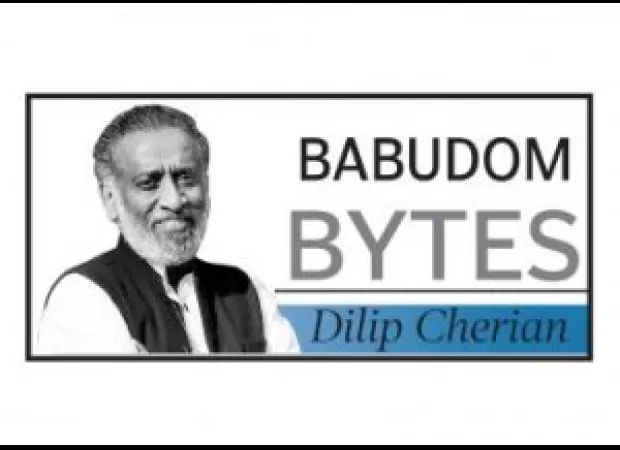Gender disparity exists in the field of IFS.
The number of women in the Indian Foreign Service has risen to 37.8%, with a peak of over 40% in 2018-2020, which is higher than other services like the IAS.

The Indian Foreign Service has seen a significant rise in the number of women joining its ranks in recent years. In the period between 2014 and 2022, the percentage of women in the service has increased by 6.6%, currently standing at 37.8%. What's even more impressive is that between 2018 and 2020, over 40% of new recruits were women. This is a remarkable achievement, especially when compared to other services like the IAS and IPS, which have a lower percentage of female representation.
However, despite this progress, there is still much work to be done to achieve true gender parity in the diplomatic corps. Women in the IFS have faced numerous challenges in the past, such as being overlooked for challenging assignments and being required to seek government approval to marry, unlike their male colleagues. It wasn't until 1979, when CB Muthamma fought against these discriminatory practices, that changes were finally made. But even today, the IFS remains a relatively small service, which is surprising for a country like India that prides itself on being a rising global power. Experts have long called for a significant increase in the number of recruits to address the gender gap and strengthen India's presence on the international stage.
Interestingly, as seen in 2015 when 17 women were inducted, increasing the number of recruits has led to a higher proportion of women joining the service. However, the number of female diplomats leading Indian missions abroad has declined in recent years. In 2008, over 25 missions were headed by women, including in important locations. But today, only eight Indian diplomatic missions are headed by women, with none in major capitals. This is a concerning trend, and it highlights the need for addressing the structural and cultural barriers that hinder women's progress and leadership in the IFS.
To achieve true gender parity, External Affairs Minister S Jaishankar must work towards creating equal opportunities for women in the diplomatic corps. A more inclusive and diverse representation will not only reflect the values and strengths of modern India but also strengthen its global image.
The new government under Prime Minister Narendra Modi is wasting no time in getting things done. With the new Union Ministers settling into their roles, private secretaries have been appointed to assist them. In the first wave of appointments, private secretaries for Union Ministers like Nitin Gadkari, Manohar Lal Khattar, Giriraj Singh, and Hardeep Singh Puri have been announced. These private secretaries are selected from the 2010, 2011, and 2012 batches of the IAS.
What's interesting is that these appointments were made without much input from the ministers themselves, especially in the case of Gadkari. In the second round, six officers have been named as private secretaries to Union Ministers, including Anirudha Sravan Pulipaka from the Karnataka cadre as the private secretary to Finance Minister Nirmala Sitharaman. This haste in appointments can be attributed to the 100-day action plan for ministries and departments, which was created by bureaucrats and Niti Aayog officials at the Prime Minister's direction, even before the elections were announced. These plans, which require legislative approval or funding, will be highlighted in the upcoming Budget to be presented next month. It's clear that the government is determined to hit the ground running, and these swift appointments are just the beginning.
In a heartwarming gesture towards improving the ease of doing business, officials in Gujarat have come up with a unique solution - accepting bribes on an EMI basis. Yes, you read that right. Instead of demanding a lump sum, these considerate officials have taken inspiration from the banking system and allowed citizens to pay bribes in easy installments. This is a significant change from the past, where people had to scrape together large sums of money to pay bribes. For instance, earlier this year, someone involved in a State GST bogus billing scam was asked for a bribe of Rs 21 lakh. Luckily, they were able to pay it in installments of Rs 2 lakh per month for nine months. This trend is spreading, with reports of officials in Surat offering an EMI option for bribes, including a deputy sarpanch and a taluka panchayat member who asked for Rs 85,000 in three installments.
Unfortunately, this practice has also led to some dramatic incidents, such as two cops who fled with the first installment of a Rs 10 lakh bribe they demanded from a resident. Senior police officials admit that this trend is gaining popularity, with at least 10 such cases reported this year alone. It's an eye-opening aspect of the so-called Gujarat model, and it may even inspire other states to adopt this approach. So, while we may not be able to escape bribes altogether, at least we can now pay them in monthly installments instead of emptying our pockets in one go. A small silver lining in an otherwise corrupt system.
1 Views






